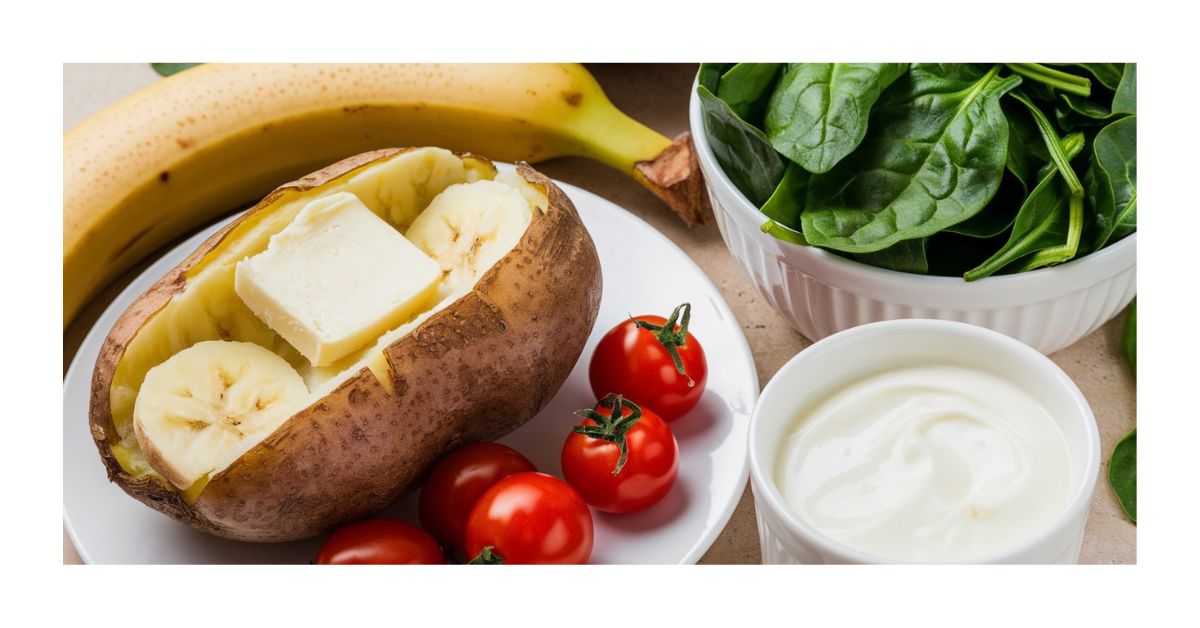
- What Does Potassium Do for Your Body? Potassium Natural Sources
- Potassium is a vital mineral that plays a crucial role in maintaining the overall health of the human body. It’s an essential nutrient that the body relies on for various functions, from maintaining proper cell function to supporting heart health. A potassium deficiency can lead to serious health problems, so it’s important to ensure you’re getting enough of it from your diet. In this article, we will dive into the importance and potassium natural sources, what it does for your body, and explore the best natural sources to include in your diet. Learn more…
- What Is Potassium and Why Is It Important?
- Potassium is an electrolyte, a mineral that helps to conduct electricity throughout your body. It works in tandem with other electrolytes such as sodium, calcium, and magnesium to maintain essential body functions. As a crucial component in cell function, potassium helps to balance fluid levels in your body, which is vital for maintaining normal blood pressure.
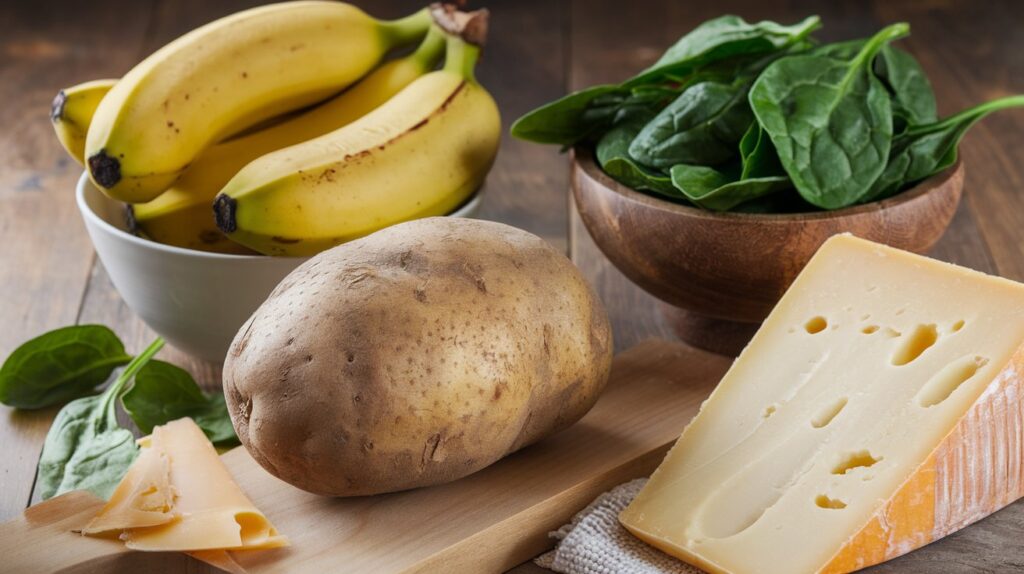
- Key Functions of Potassium in the Body
- Maintains Fluid and Electrolyte Balance:
- One of the primary roles of potassium is to balance fluids in and around cells. It helps to regulate blood pressure by counterbalancing the effects of sodium. When potassium levels are low, sodium levels can rise, leading to high blood pressure and an increased risk of heart disease.
- Supports Heart Health:
- Potassium is essential for heart function. It helps regulate your heartbeat by ensuring proper transmission of electrical impulses. A sufficient amount of potassium helps to reduce the risk of heart disease and stroke.
- Promotes Muscle Function:
- Potassium plays a key role in muscle contractions. It helps prevent muscle cramps and contributes to muscle strength and endurance, making it essential for athletes and individuals with active lifestyles.
- Regulates Nerve Function:
- Nerve signals rely on potassium to transmit messages from the brain to various parts of the body. This mineral ensures proper nerve transmission, helping you respond to stimuli quickly and accurately.
- Supports Kidney Function:
- Potassium assists the kidneys in filtering out waste products from the blood, promoting overall kidney health. It helps maintain a proper balance of water and electrolytes, preventing the development of kidney stones and other related issues.
- Boosts Bone Health:
- Emerging research suggests that potassium may have a positive impact on bone health. Potassium-rich diets help reduce the loss of calcium through urine, which can benefit bone density and reduce the risk of osteoporosis.
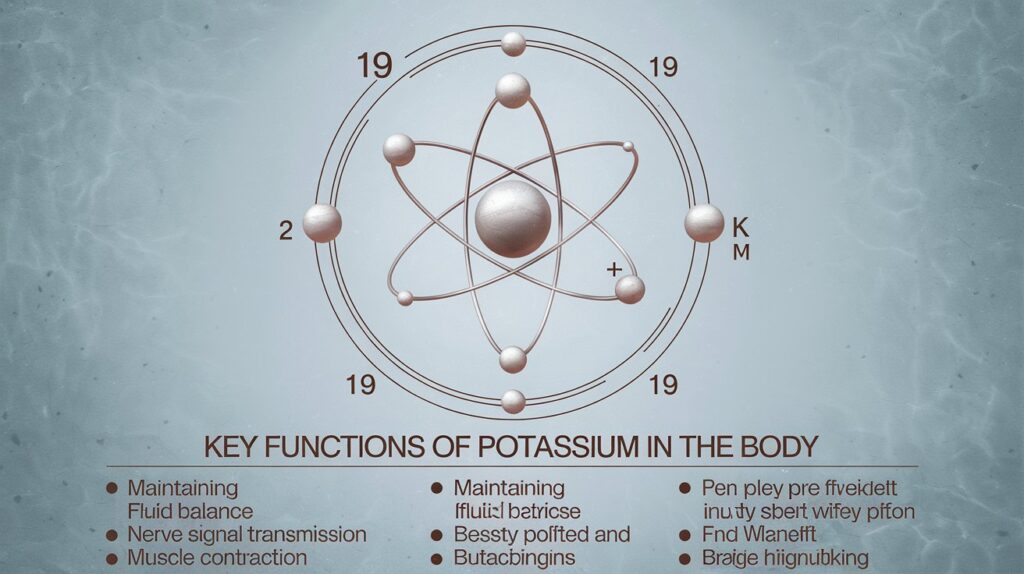
- Signs of Potassium Deficiency
- Not getting enough potassium can lead to various health problems. Some of the common signs of potassium deficiency include:
- Fatigue
- Muscle weakness or cramping
- Heart palpitations
- Constipation
- High blood pressure
- Breathing difficulties
- If you experience any of these symptoms, it may be due to low potassium levels, and it’s essential to increase your intake through diet or supplements, after consulting with a healthcare professional.
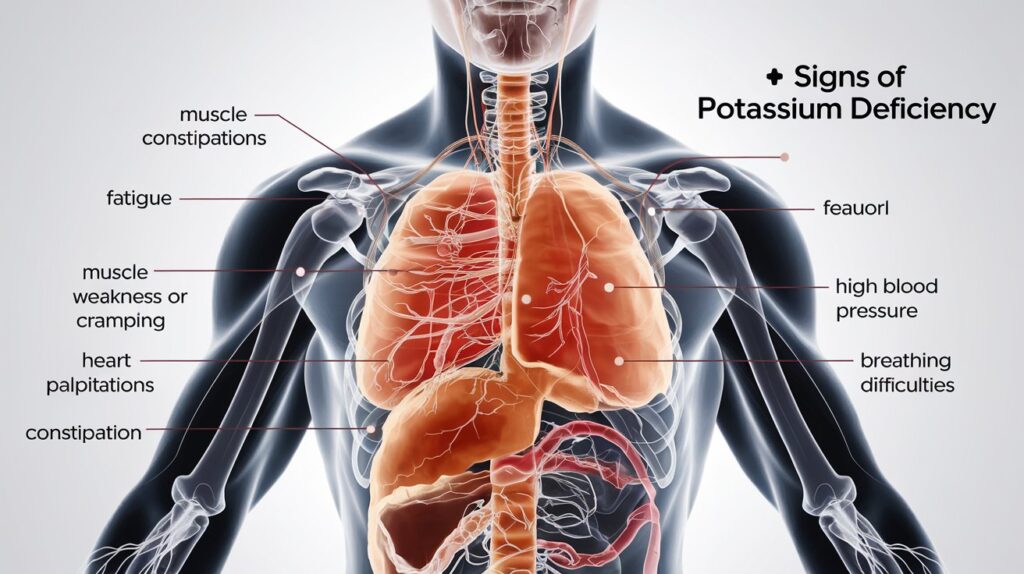
- Natural Sources of Potassium
- Incorporating potassium-rich foods into your diet is one of the best ways to ensure you’re getting enough of this important mineral. Here are some of the best natural sources of potassium:
- Bananas
- Bananas are perhaps the most well-known source of potassium. One medium banana contains about 400 mg of potassium, making it an easy and convenient snack to boost your intake.
- Sweet Potatoes
- Sweet potatoes are a nutritional powerhouse, and they are rich in potassium. One medium sweet potato provides over 540 mg of potassium, along with other essential nutrients like fiber, vitamin A, and vitamin C.
- Spinach
- Spinach is a leafy green that’s packed with potassium. Just one cup of cooked spinach contains 839 mg of potassium, making it one of the best sources among vegetables.
- Avocados
- Avocados are not only loaded with healthy fats but are also an excellent source of potassium. A medium-sized avocado contains around 700 mg of potassium, making it a great addition to any meal or snack.
- Beans and Lentils
- Legumes such as beans and lentils are rich in potassium. A cup of cooked lentils provides 731 mg of potassium, and black beans are also a great option, with about 611 mg per cup.
- Coconut Water
- Coconut water is an excellent hydrating beverage and is naturally rich in potassium. A single cup of coconut water provides about 600 mg of potassium, making it a great post-workout drink.
- Yogurt
- Yogurt is another great source of potassium, especially when it’s unsweetened. A cup of plain, low-fat yogurt contains about 573 mg of potassium, making it a nutritious and filling option for breakfast or a snack.
- Salmon
- Salmon is a heart-healthy fish that is not only rich in omega-3 fatty acids but also in potassium. A 3-ounce serving of salmon provides about 416 mg of potassium, supporting both heart and muscle health.
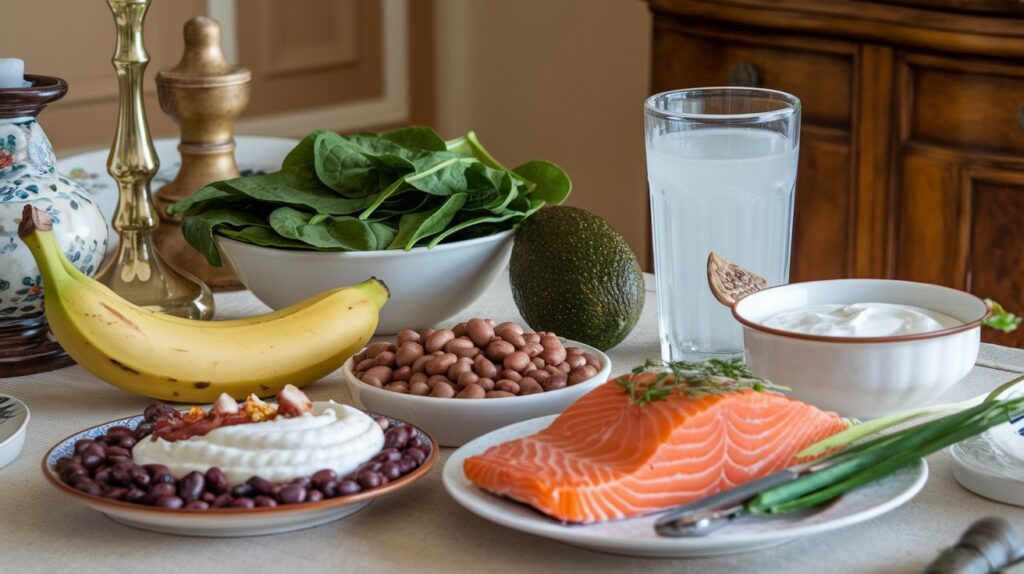
- Daily Potassium Requirements
- The recommended daily intake of potassium varies by age, gender, and overall health. For most adults, the recommended intake is around 2,500–3,000 mg per day. Pregnant and breastfeeding women may require more. If you are concerned about your potassium levels or have certain health conditions like kidney disease, consult with a healthcare provider to determine the right intake for you.
- FAQs About Potassium
- How does potassium help with blood pressure?
- Potassium helps to balance sodium levels in the body, lowering blood pressure. A potassium-rich diet can help reduce the risk of hypertension and improve heart health.
- Can I get too much potassium from food?
- While getting too much potassium from food is rare, it can happen if you have certain medical conditions like kidney disease. The kidneys are responsible for removing excess potassium, and if they aren’t functioning properly, potassium can build up in the bloodstream, leading to hyperkalemia.
- Is potassium more important than sodium?
- Both potassium and sodium are important electrolytes, but they have opposite effects on the body. While sodium tends to raise blood pressure, potassium helps lower it. Maintaining a healthy balance between the two is essential for overall well-being.
- What foods should I avoid if I need to limit my potassium intake?
- If you need to limit potassium, you should avoid high-potassium foods like bananas, oranges, avocados, and potatoes. Always consult with a healthcare provider before making dietary changes.
- Can potassium supplements replace dietary potassium?
- Supplements can help in cases of deficiency, but it’s always best to get potassium from natural food sources when possible. Food sources provide additional nutrients and are generally safer unless your healthcare provider recommends otherwise.

Leave a Reply